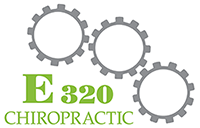SHARE THE LOVE
If you’re reading this, chances are you’re navigating a journey no parent expected. Maybe your child is dealing with chronic conditions like seizures, insomnia, anxiety, depression, constipation, or autoimmune issues like PANS or PANDAS. It can be overwhelming, but there’s a key piece of the puzzle that may be missing in traditional approaches: dysautonomia.
The Hidden Epidemic
Chronic health problems are more common than ever among teens and young adults. Rates of anxiety, depression, poor gut health, autoimmune conditions, and even seizures have skyrocketed, leaving many parents feeling helpless.
What’s even more frustrating is that traditional medicine often offers little more than a mix of medications that simply mask the symptoms. Many teens we see are on multiple medications, yet they still feel unwell, dealing with side effects that only add to their struggles. What if there’s a deeper issue causing these health challenges?
Connecting the Dots: Dysautonomia
One common thread tying these conditions together is something called dysautonomia—an imbalance in the autonomic nervous system (ANS). Understanding dysautonomia could be the missing piece in your child’s health puzzle, opening up new possibilities for healing.
What is Dysautonomia?
The autonomic nervous system controls all of the body’s automatic functions, such as heart rate, digestion, blood pressure, and temperature regulation. It’s made up of two key systems:
- The sympathetic nervous system (“fight or flight” response)
- The parasympathetic nervous system (“rest and digest” mode)
When these systems are in balance, they work seamlessly to maintain health and well-being. But with dysautonomia, this balance is thrown off, causing a wide range of symptoms that affect nearly every system in the body.
The Two Main Problems of Dysautonomia
- Sympathetic Overdrive: The “fight or flight” system gets stuck in the “on” position.
- Parasympathetic Suppression: The “rest, relax, and regulate” system is suppressed, unable to do its job.
Since the autonomic nervous system controls so many essential functions, when dysautonomia takes hold, issues can arise all over the body. The most common areas affected include:
- Sleep: Trouble falling or staying asleep, leading to fatigue and brain fog.
- Digestion: A nervous system stuck in stress mode pulls energy away from digestion, resulting in gut issues.
- Immune Function: Chronic stress weakens the immune system and increases inflammation.
- Brain Health: Cognitive, emotional, and behavioral issues often worsen when dysautonomia is present.
The “Perfect Storm”: How Dysautonomia Develops
Dysautonomia doesn’t happen overnight. It’s often the result of a “Perfect Storm” of factors, including:
- Prenatal stress
- Birth trauma or interventions (like C-sections, forceps, or vacuum deliveries)
- Early childhood stressors
- Environmental toxins
- Poor nutrition
- Chronic infections
Understanding these triggers can help you and your healthcare team take a more comprehensive approach to your child’s health.
Taking Charge of Your Child’s Health
You have more power than you realize when it comes to helping your child overcome these challenges. Here are some proactive steps you can take:
- Recognize the Signs: Look for patterns in sleep disturbances, digestive problems, anxiety, and other symptoms that could point to dysautonomia.
- Seek Proper Care: Traditional medical tests often miss dysautonomia, which is why it’s so frequently overlooked. Neurological INSiGHT Scans, specifically Heart Rate Variability (HRV) testing, can detect the nervous system imbalances behind these issues.
- Consider Neurologically-Focused Chiropractic Care: This approach addresses the root cause of dysautonomia, helping to restore balance to the nervous system and improve your child’s overall health.
- Support the Nervous System: Incorporating stress-reducing techniques, ensuring proper nutrition, and prioritizing sleep are all key steps in rebalancing the autonomic nervous system.
- Be Patient and Persistent: Healing takes time. Celebrate the small victories and know that rebalancing your child’s nervous system is a process.
Hope for the Future
You don’t have to let dysautonomia or chronic health issues hold your child back any longer. Thousands of families have found hope, answers, and drug-free solutions with Neurologically-Focused Chiropractic Care.
At E320 Chiropractic, we begin with a thorough consultation and case history, diving deeper than traditional doctors to find the root cause of your child’s health challenges. Our process includes Neurological INSiGHT Scans to test for dysautonomia and nervous system imbalances—a quick, 15-20 minute process that can provide life-changing insights.
Once we’ve gathered all the necessary information, we sit down with you to review the findings, explain everything in detail, and discuss your child’s customized care plan. This comprehensive approach ensures that we’re not just addressing symptoms but truly helping your child heal from the inside out.
Ready to Take the Next Step?
If you’re ready to explore what might be driving your child’s chronic health issues, don’t wait to schedule a consultation and Neurological INSiGHT Scan. Let’s work together to help your child—and your family—thrive.
